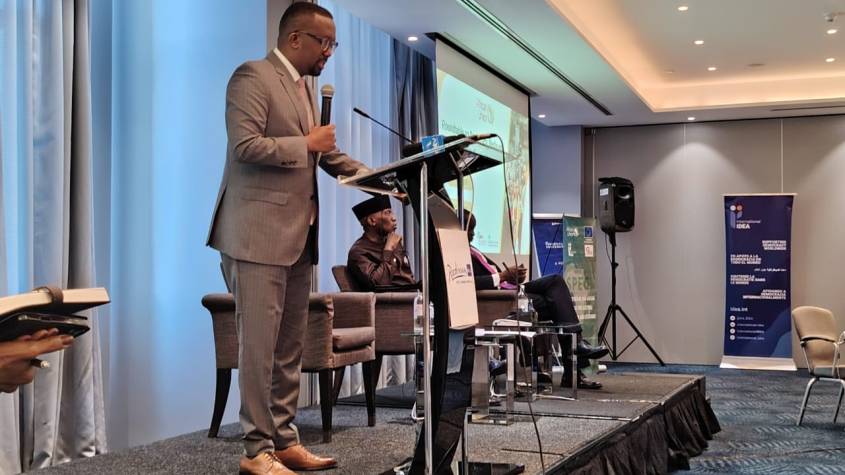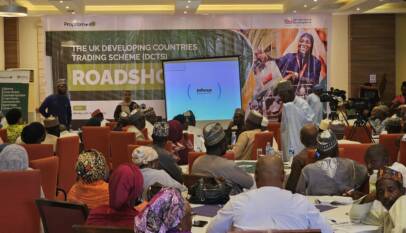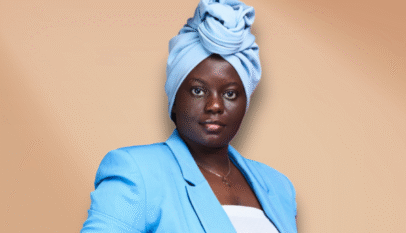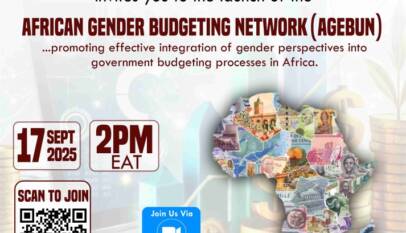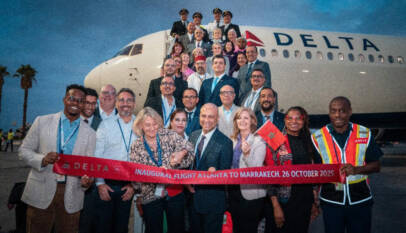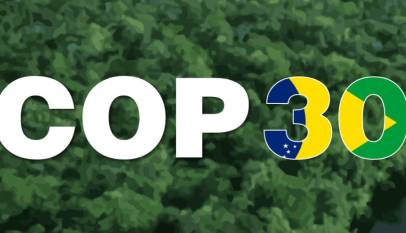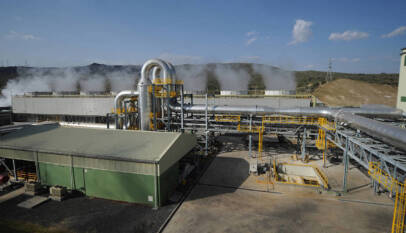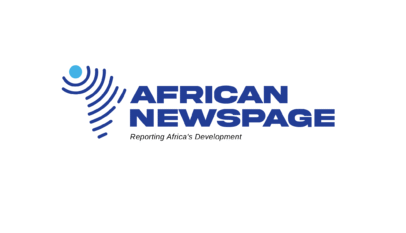SPOTLIGHT | Omar Faruk Osman: A Champion for African Press Freedom and Journalists’ Welfare
In a continent where journalists increasingly face threats to their safety, deteriorating working conditions, and shrinking press freedoms, Omar Faruk Osman, President of the Federation of African Journalists (FAJ), is spearheading a continent-wide movement for safer journalism and a more democratic media environment.
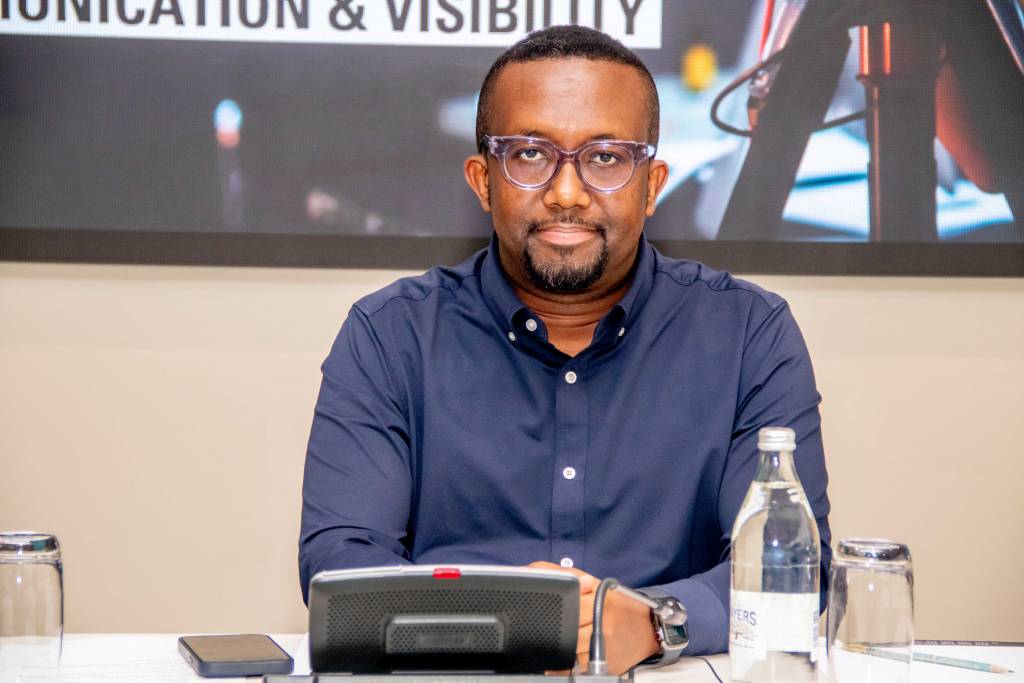
Osman, who spoke exclusively to African Newspage, is widely respected for his unwavering advocacy for journalists’ welfare and his firm stance against impunity in the media sector. As President of the Federation of African Journalists (FAJ)—the continent’s largest organization of media professionals—he is at the forefront of championing ethical, safe, and independent journalism as a cornerstone of democracy in Africa.
He also serves as the Secretary-General of the National Union of Somali Journalists (NUSOJ), while playing a prominent global role within the International Federation of Journalists (IFJ) on whose Executive Committee he sits. Through these platforms, Osman continues to amplify the voices of African media workers and remains a steadfast defender of press freedom around the world.
Osman’s War Path to Journalism: From Conflict Zones to Press Freedom Advocacy
Osman’s journey into journalism began in war-torn Somalia in the early 1990s, reporting for Radio Maanta, then operated by the UN peacekeeping mission, UNOSOM. “I was just exiting my teenage years around 1992. They used to tell me, ‘Write what you see—how many checkpoints were dismantled, what the community felt about the conflict,’” he told African Newspage.
Osman traces his journalistic instincts to a childhood immersed in diplomacy and military culture, shaped by long hours spent listening to the radio with his father. His early field notes as a rookie reporter were often crafted into full news stories by editors, eventually earning him a place in Maanta Radio’s newsroom. “Eventually, they’d invite me into the newsroom and even put me on air to describe what I witnessed,” he recalled.
Over the last three decades, Osman has worked with nine media houses across Somalia—spanning radio, television, and print. His firsthand experience reporting from the frontlines of Somalia’s civil war, which erupted following the 1991 collapse of President Siad Barre’s regime, deeply influenced his enduring advocacy for press freedom across Africa.
Today, he warns that journalism as a profession—and journalists themselves—are facing increasingly grave threats on the continent.
Journalists’ Too Many Challenges
Speaking on the harsh realities confronting journalists across the continent, Osman was unequivocal in his assessment of the crisis facing African media professionals. “In Africa, we are grappling with a very serious issue when it comes to the protection of journalists. Both physical and legal safety are in grave jeopardy,” he stated.
He cited a litany of threats—arbitrary arrests, harassment, imprisonment, and even assassinations. These dangers, he stressed, are exacerbated by “abysmal” working conditions. “Journalists are among the most poorly paid professionals on the continent. The conditions of service are horrendous.”
Osman views the struggle as multi-faceted. “Journalists are not only unsafe and underpaid, but media houses themselves face severe economic instability. Outdated business models are being disrupted by the internet and social media. The economic viability of the media is almost zero—and the situation is steadily worsening.”
On the role of the Federation of African Journalists (FAJ), Osman emphasized that advocacy is the quarterback of the Federation’s mission and must be active, strategic, and rooted in tangible action rather than rhetoric.
“We are a campaigning organization. A pressure group. We speak for journalists. We push for progressive policy and legal reforms. We advocate to improve journalists’ working conditions, we defend them legally, and we push for professionalization of the media sector. We help them move from one place to another to learn and gain experience. FAJ is not a donor organization, but we are a fighting one with a cause,” he stressed.
On the issue of fair pay, Osman is equally vocal. He said FAJ, through its national unions, is encouraging journalists to negotiate better pay and working conditions. “The people setting journalists’ salaries are media owners. That’s why we are working to strengthen collective bargaining. We are also advocating for compliance with minimum wage standards. In many places, journalists work not for money but for name recognition,” he decried.
Osman’s vision for African journalism centers on revitalizing unionism, which he sees as critical to the survival and integrity of the media. “When we are divided, we are weak. But when we unite, we are powerful,” he said, advocating for increased collective bargaining and stronger union efforts to secure better working conditions.
He acknowledged resistance from media owners and political actors who view strong journalist unions as a threat, but emphasized that demanding accountability, safety, and fair treatment is what empowers the profession. For FAJ, he asserts, every journalist deserves fair pay, legal protection, and an environment that respects both their voice and welfare.
Championing the protection and empowerment of female journalists is a top priority for Osman, who highlights the unique gender-based threats they face in addition to the general dangers confronting all journalists. “Female journalists share the same risks as their male counterparts, but also face distinct, often more dangerous challenges,” he said.
Osman stressed that journalist unions and media institutions must take gender equity seriously, insisting that women in media be respected, fairly paid, and prioritized in advocacy efforts. “We must ensure women journalists are not left behind in our fight. Female journalists experience all the challenges I’ve mentioned—but on top of that, they face distinct and often dangerous threats,” he said, describing their situation as “deeply troubling for us.”
Media’s Irreplaceable Role in a Democracy
Reflecting on the media’s vital role in society, Osman spoke passionately about its connection to democracy: “There would be no democracy without media. It’s that simple. You can’t talk about democracy without a free and independent media, where journalists practice safe and ethical journalism,” he declared.
He called for editorial independence and freedom of conscience as essential pillars of the democratic process. “Journalists must be free to tell the story—to practice safe journalism, to recount history in a fair, ethical, and responsible manner that is not dictated or controlled. We need editorial independence. We need freedom of conscience for journalists. We need journalists to tell the truth for the good of the people,” he said.
Osman underscored the indispensable role of the media in shaping democratic societies and fostering civic engagement. To him, the media is not merely a vehicle for disseminating information—it is the backbone of societal mobilization and the lifeblood of democracy and social cohesion.
“Democracy and media go hand in hand—you cannot separate them. Anyone who believes democracy can thrive without a free press is mistaken. For me, journalism is a public good. That’s why we must address the intertwined challenges of democracy and civic engagement, which are inseparable from the role of the media,” he explained.
Osman concludes with a passionate call to action. “If we lose media freedom, we lose democracy. If journalists aren’t safe, the public loses access to information and truth. Politicizing journalism or attempting to control the media space is a dangerous step toward authoritarianism. We must keep pushing forward. This is not just a fight for our profession—it’s a fight for democracy.”

